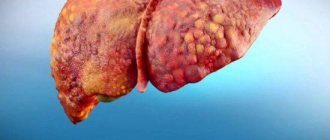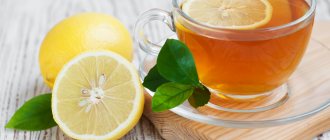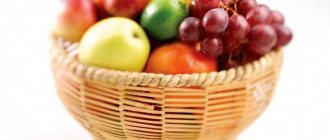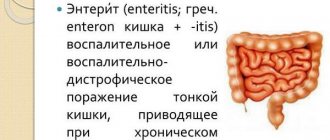Foods that cause colic
It has been noticed that boys and babies born in the summer are more prone to colic than others.
When breastfeeding, the mother's diet should be carefully thought out. After all, with breast milk, a completely fragile baby receives everything that is absorbed by the mother. Therefore, a nursing mother needs to exclude from her diet foods that cause colic in newborns and provoke increased gas formation in the intestines:
- legumes,
- White cabbage,
- black bread,
- baking,
- fresh dairy products.
Instead, it is useful for mothers to eat when breastfeeding:
- dairy products,
- cheese,
- lean meat,
- fish,
- baked and boiled vegetables and fruits.
Diet of a nursing woman: how to avoid problems
It should be noted that not only certain vegetables or fruits cause excessive gas formation in the intestines of the mother or baby, but also a combination of completely neutral substances. Therefore, a nursing woman should always consult a specialist before introducing certain foods into her diet.
It has long been noted that the simultaneous consumption of foreign foods causes certain discomfort. If such a condition quite often provokes problems in people in everyday life, then disorders of the gastrointestinal tract in a nursing mother can cause quite serious complications.
A young woman should be wary of the following combinations:
- It is not recommended to eat various legumes and fresh wheat or wheat bread at the same time. It should be noted that if wheat varieties are included in the food, intestinal upset may occur 2 times more often.
- Women during lactation are completely prohibited from any carbonated drinks, especially Pepsi and Cola. The combination of sugar and carbohydrates is harmful to the health of patients, and since soda is based on chemicals, the poisoning of the body does not depend on the food that the lady washed down with such a potion during lactation.
- Fried meat dishes, especially those prepared with various spices, in combination with sweet homemade compotes and fruit drinks, are completely unsuitable for feeding a nursing mother. Carbohydrates and proteins always cause flatulence in patients, and in a nursing mother, a similar problem can spread to the baby.
- It has long been known that various dairy products cannot be combined with meat products, fish or vegetables. Everyone knows about the possible consequences of simultaneous consumption of milk and cucumbers. And this is far from the only example.
Modern nutrition systems for nursing mothers suggest leaving all dairy drinks for the last hour before bed to stimulate the release of breast milk. And it is advisable to remove all sweet drinks from a young woman’s diet before the child reaches 6 months.
The lack of carbohydrates in the mother’s body is quite easy to compensate for with other products, but problems with the gastrointestinal tract in the mother and child can cause a delay in the baby’s development and early refusal of breastfeeding. To prevent such complications, modern medicine offers a wide range of medications.
Watch the video about nutrition for a nursing mother:
Milk, dairy products
This seems strange to many, but it is whole cow’s milk in large quantities that can cause colic in a baby and the development of an allergy to lactose. You can drink no more than 2 glasses of milk per day. It is best to eat dairy products after heat treatment (casseroles, cheesecakes, milk porridges and jelly). Sour cream can be consumed after heat treatment (add it to sauces and casseroles). Butter is good to add to porridge and other dishes. But fermented milk products (kefir, fermented baked milk, yogurt without dyes or any additives) should be consumed daily by a nursing mother.
Why does mom need a food diary?
To accurately determine which foods in your diet are causing colic, it is recommended to keep a food diary. It is advisable to write down not only a list of what you ate during the day, but also the exact time of meals. This will help identify the “provocateur.”
Absorption of each product is about 4-5 hours. This is exactly how long it takes for the active substances from it to enter breast milk. For this reason, it is also recommended to keep a feeding diary, which will help to accurately determine which product is the culprit of the baby’s poor health.
Mother's nutrition in the first months: video
Flour products
It is better to avoid yeast bread made from wholemeal flour and baked goods. Yeast promotes an active fermentation process and causes colic in infants. When breastfeeding, it is better for mothers to eat bread products that are made from whole grains without the use of yeast. Crackers are completely safe. Choose pasta from durum wheat.
Video
- Cleaning your face at home from acne and blackheads - 04/17/2019
- Which formula is best to choose for a newborn with mixed feeding: advice from mothers! — 06/16/2017
- How to get SNILS for a newborn child: list of required documents - 06/09/2017
Green apples are one of the most favorite fruits of young mothers. After all, during feeding, young parents try to select only healthy foods. At first glance, green apples do not pose a threat to both mother and baby. But, on the other hand, do we know everything about their composition and effect on breast milk? Let's figure it out together.
Diet for flatulence in a newborn
It is easy to determine the presence of flatulence in a newborn and infant. The baby becomes restless for no apparent reason (the diaper is dry, the temperature is not elevated), refuses to eat, is capricious and cries.
When attacks of colic develop, the baby bends its legs to its stomach, clenches its hands into fists and screams. It is almost impossible to calm the baby.
If a newborn has increased gas production, his stomach will be swollen and dense. When pressing on the abdominal wall, the pain usually intensifies. Gases come out loudly and have an unpleasant odor. When a child has flatulence, it is important for a nursing mother to follow a certain diet.
All foods that increase gas formation and irritate the intestinal mucosa should be excluded from the diet. A woman’s diet should be developed taking into account age restrictions and the state of the digestive system. The menu should include products that have a carminative effect, normalize stool and gas discharge.
Allowed products for a nursing mother with flatulence in a child:
- lean boiled fish;
- dried bread, crackers;
- cottage cheese;
- biokefir;
- bay leaf, cumin;
- green tea;
- low-fat meat and fish broths;
- curdled milk;
- pureed buckwheat porridge with water;
- decoctions based on rose hips, blueberries, bird cherry;
- dill, parsley;
- protein steam omelette;
- steamed cutlets, soufflé, meatballs, meatballs made from lean meats.
Oriental delicacies
Oriental delicacies come first on the list of permitted sweets. First of all, these are Turkish delight and kozinaki. However, they can only be consumed if the baby is not allergic to nuts and seeds.
The same applies to halva. If there is no allergy, the treat can be eaten in limited quantities. The unsaturated acids in this product strengthen the body and speed up recovery after childbirth.
Nuts and seeds normalize the condition of hair, skin and nails, improve blood circulation and strengthen blood vessels, relieve fatigue and tension. In addition, halva often increases lactation. Halva is easy to prepare at home.
Remember that halva and Turkish delight are difficult to digest foods, so you should not get carried away with such delicacies. In addition, seeds and nuts are classified as strong allergens.
The permissible daily intake of halva, Turkish delight or kozinaki is 50-100 grams.
Why can't you have sweets while breastfeeding?
It's all about the peculiarities of the digestive system of a newborn baby, which is not at all perfect:
- the stomach is located horizontally, and not vertically, like in an adult, with insufficient formation of the entrance sphincter, which provokes active regurgitation;
- the digestive glands secrete a small amount of secretion, which is necessary for digesting food;
- the intestines are sterile - they need beneficial microflora, which enters the baby’s body along with mother’s milk;
- intestinal motor activity is greatly reduced, as a result of which ailments often appear;
- the digestive system is not designed to digest such an amount of fast carbohydrates if the mother begins to eat a lot of sweet foods;
- increased permeability of the intestinal walls - this leads to lightning-fast absorption of harmful substances into the baby’s body, immediately provoking acute poisoning;
- The muscles of the stomach and intestines are underdeveloped, which leads to the accumulation of gas, bloating and pain, which can be further provoked by unhealthy and heavy foods.
Does a baby get colic from sweets?
Do sweets cause colic?
A nursing mother should not overuse desserts, not even because of their calorie content. The baby can be harmed by dyes, preservatives and other chemical additives contained in confectionery products. They will cause a severe allergic reaction in the baby. Moreover, sweets become a real test for the baby’s digestive system. Carbohydrates are difficult to digest, and some foods, especially chocolate and yeast dough, contribute to increased gas formation. As a result, the baby may develop colic.
However, in small quantities, sweets are healthy, because they promote the production of serotonin, a hormone that relieves fatigue, keeps the body in good shape, and is responsible for healthy sleep. This is especially important for those struggling with postpartum depression. So sometimes you can treat yourself to desserts. The main thing is to choose the right products that will not harm either you or your baby.
Allowed sweets
Biscuits and oatmeal cookies are considered the safest for mothers and babies . They contain useful microelements and rarely cause food allergies in the baby. It’s better to cook them yourself to be sure of the quality of the product.
Without any worries, you can treat yourself to meringues and white marshmallows. They are quite easy to prepare at home, and if you do not overuse them, your baby will not have tummy problems.
Don't deny yourself a piece of charlotte. Flour, sugar, eggs and green apples should not cause a negative reaction in the baby. If cakes and pies, especially store-bought ones, remain prohibited until the end of breastfeeding, then you can easily afford charlotte. Nursing mothers can eat oriental delicacies : Turkish delight, halva and kozinaki. They contain acids that improve blood circulation, relieve fatigue, and have a beneficial effect on the condition of hair and nails. Just eat them rarely, in small portions - 50-100 grams per day, and only if the baby is not prone to food allergies.
When your baby is six months old, you can treat yourself to chocolate. However, you need to understand that it is a strong allergen and is difficult to digest. Therefore, for the first time you need to try 25 grams, that is, one “square”, and monitor the baby’s reaction throughout the day. If he doesn't develop a rash or have problems with bowel movements, you can increase the portion. You are allowed to eat 50 grams of dark chocolate without additives a couple of times a week.
We follow the rules
To be calm about your own health and the condition of your baby, include sweets in your diet correctly:
- Don't eat too many sweets at one time. Introduce them into your diet after your baby turns three months old. After six months, you can include not only chocolate in the menu, but also homemade jam from apples, pears, apricots or peaches.
- Milk, honey, products with preservatives, dyes and flavorings remain prohibited.
- For the first time, try a small piece of the treat, and then monitor the baby’s condition for two days. If he feels good, calmly increase the portion.
- Introduce new foods into your diet gradually so that you can easily monitor your baby's reaction.
- Try to prepare sweets yourself. If this is not possible, carefully study the composition of the product and do not forget about the expiration dates.
- If you crave sweets too often, try to “trick” your body: eat dried fruits (dried apples, apricots and plums). They are easily absorbed by the body, normalize digestion and are completely safe for the baby.
Green apples: composition, benefits and harm for a nursing mother
Multi-seeded apple fruits growing in Russia and other countries. Well-known varieties are:
- Moscow later,
- Granny Smith (Australia)
- Sinap Oryol is winter-hardy,
- Kutuzovets,
- Green-Leaves,
- Linda,
- Kostel (Poland),
- dwarf varieties (Bratchud, White Sun and others).
In our country, such varieties as Antonovka, Cinnamon novoe, Anis, and Dachnoye are popular.
Apples are not only very juicy and tasty fruits, but also healthy.
They contain proteins, fats, carbohydrates, a lot of water, as well as unsaturated fatty and organic acids, dietary fiber. The seeds of green apples contain iodine, and the peel contains a lot of fiber.
In addition, the green apple contains microelements such as potassium, phosphorus, calcium, boron, zinc, fluorine, copper, manganese, etc., and there are many B vitamins.
The positive properties of green apples include the following:
- normalization of metabolism;
- normalization of stool and elimination of constipation, thanks to the large amount of fiber in the peel;
- flavonoids contained in fruits help stop premature aging;
- improve tooth enamel;
- removal of fluid;
- normalization of kidney function;
- improved blood circulation;
- lowering blood cholesterol levels;
- removing toxins from the body;
- stimulation of the human immune system;
- iron has a beneficial effect on blood formation processes in the human body;
- Moderate consumption of apples helps to quickly get rid of extra pounds, which is why they are included in most modern diets.
By and large, green apples are more beneficial than harmful to the human body. The only danger to humans is sugar, which is sufficient in any apple, so you should not lean too much on the fruit.
It is enough to eat no more than 2-3 apples per day.











